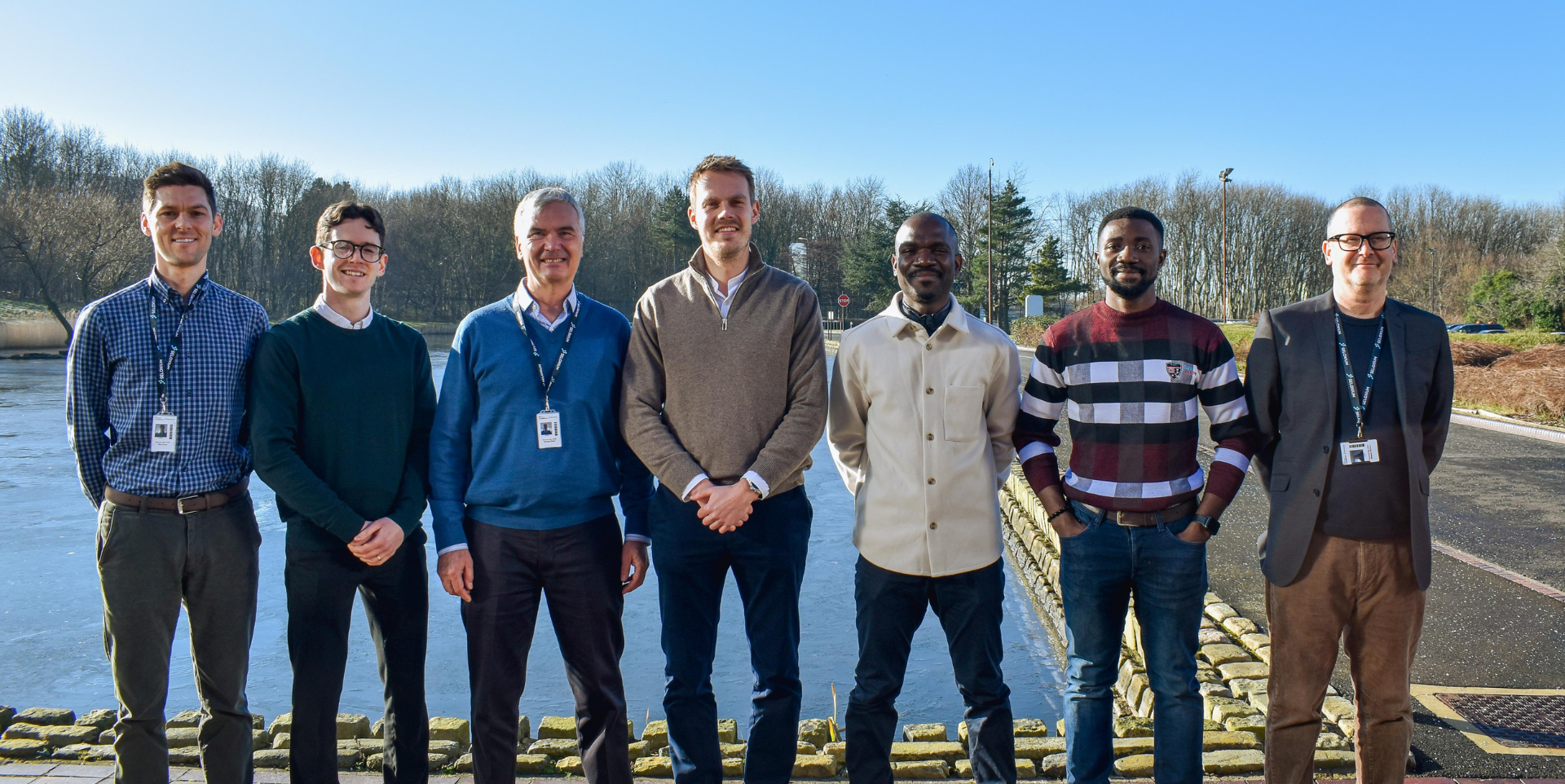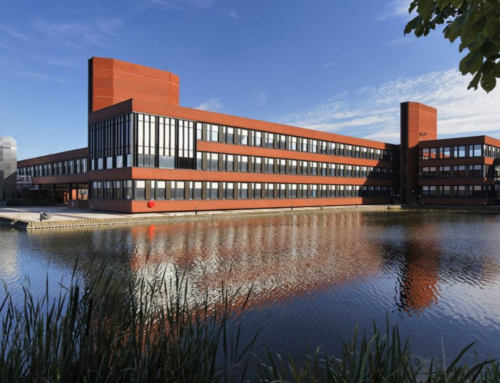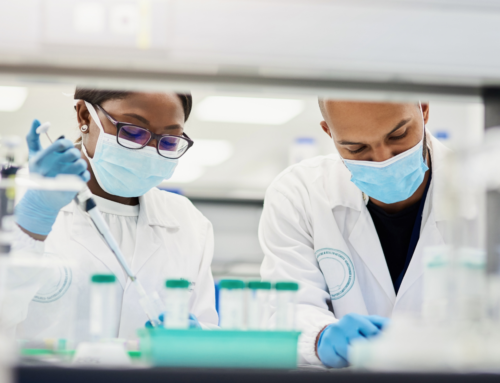The challenges for life sciences startups can be as complex as the innovations they bring to market. With long development cycles, capital-intensive requirements, and the perception of high risk, attracting funding is no small feat. Add to that the struggle to find scalable lab space, and the regulatory hurdles that many must navigate, and it is clear why many promising startups struggle to gain traction.
In this article, Pioneer Group speaks to Seloxium, a University of Oxford spinout based in Oxford and at the Wilton Centre, to uncover the realities of launching and growing an early-stage science company and the challenges it has faced along the way.
Preventing Opportunity from Going to Waste
Valuable and strategically important metals like gold, platinum, and rare earth elements are often found within industrial waste streams, yet conventional removal methods make them costly and difficult to extract and re-use. As a result, large quantities end up discarded, rather than recovered and used in the circular economy.
With global demand for these materials set to soar (potentially at least doubling by 2030) and the geopolitical complications of their locations – interest in recycling critical metals is rapidly growing.
Despite their worth, an estimated total of 30,000 tonnes of important metals have been lost or discarded. As the world strives for sustainable, circular economy solutions, such waste is both an economic and environmental problem waiting for a solution.
Seloxium was born out of this challenge: extract these valuable metals from wastewater without the usual high costs and inefficiencies, and began as a research project in the University of Oxford’s Engineering Science Department, led by Associate Professor Nick Hankins. Specialising in environmental remediation, the team set out to develop a smarter way to remove heavy metals from waste streams. The result was Selectal™- a breakthrough technology that is the foundation of Seloxium’s work.
The Road to Commercialisation
Seloxium’s journey from the lab to market took a major step forward when co-founder Steve Colley joined the team and helped to refine Selectal™ and its selectivity. Selectal’s unique competitive edge is its speed, robustness, and selectivity, all essential when dealing with complex waste streams in large quantities that contain trace amounts of valuable metals.
By enabling efficient extraction, Selectal™ turns waste processing from a costly challenge into a commercially viable opportunity.
Seloxium spun-out in September 2022, backed by a £1.9 million investment led by Oxford Science Enterprises. Upon the company’s formation, Christian Peters, who was involved in the project during his PhD, became Seloxium’s CEO, and led the scaling up of the technology and building a company.
Launching a startup is no small feat. The road to commercialisation can be littered with hurdles to overcome, from securing funding to refining the business model and gaining traction in a competitive market.
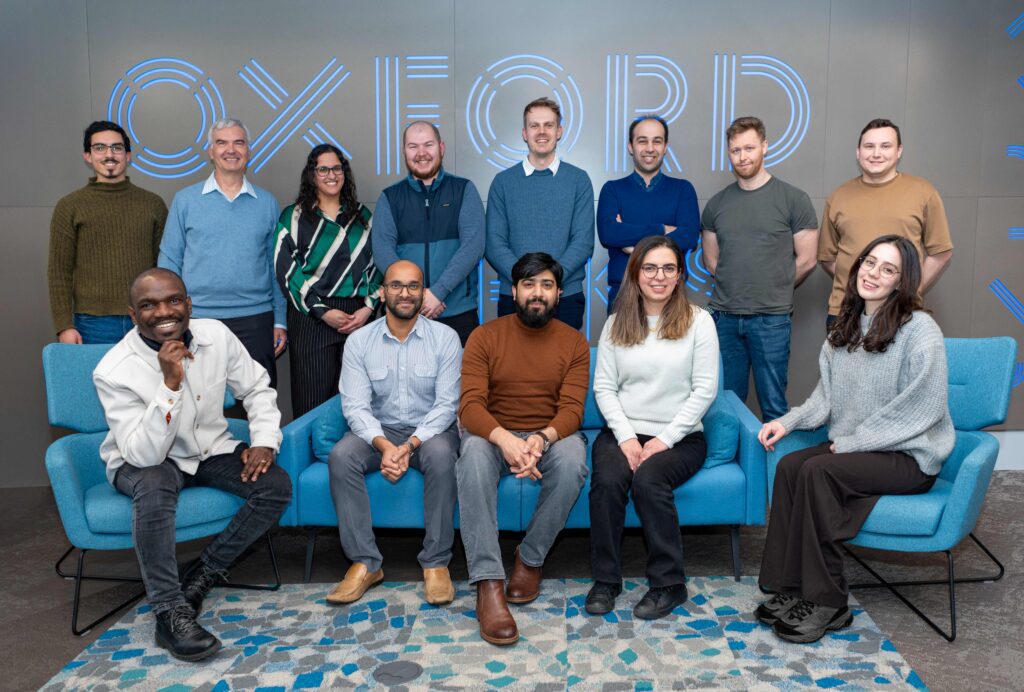
We sat down with Christian Peters, Co-founder and CEO of Seloxium to discuss the top five challenges the company encountered during its journey as a spinout.
1. Finding Funding
Oxford University provided early funding to Seloxium and Christian’s participation in the Innovate UK ICURe Programme helped sharpen the spinout’s market strategy and business model. A £300,000 Innovate UK grant soon followed, and in all Seloxium has been supported by three Innovate UK grants, totalling over £1.4 million.
Securing adequate funding remains one of the most significant challenges startups and spinouts face in their early years. Christian explains: “Securing funding is crucial in deep-tech startups, particularly in conservative industries with long development cycles. Unlike software, hard-tech solutions require significant capital and time to scale. Finding investors comfortable with these challenges has been key, and our investment partners and Angel investors have played a vital role in attracting further funding and support.”
2. Securing Lab Space
For many early-stage science companies, a significant challenge is rapidly outgrowing lab and office space. Securing a lab that can evolve with the company’s changing needs is crucial to sustaining growth.
“Operating at Pioneer’s Wilton Centre has been a significant advantage for Seloxium, as it is one of the few sites equipped to handle chemicals at scale,” adds Christian. As one of Europe’s largest R&D sites, Wilton Centre’s dedicated Technical Development Area (TDA) is comprised of four large-scale buildings, which can accommodate chemical and pilot plants, experimental rigs, machine testing and light industrial activity, providing excellent opportunities for businesses to scale-up.
3. Navigating Regulatory Processes
For Seloxium, working with waste presents unique difficulties due to its often hazardous nature, requiring specialised equipment and regulatory compliance.
“As we’ve grown, obtaining permits for larger operations has been a time-consuming process.” Christian explains. “We have worked closely with the Environmental Agency, which has been very supportive, but permitting remains a bottleneck. For startups with limited runway, these delays can be challenging. While regulatory processes are essential for safety, we believe streamlining them could accelerate growth in the sector significantly.”
4. Finding the Right Market
Seloxium operates across several markets, focusing on precious metals used in small quantities in industries such as pharmaceuticals, agricultural chemicals, and specialty chemicals. After the process, these metals are often not completely recovered, but Seloxium’s technology has proven highly effective in recovering a greater percentage of these metals compared to competing technologies, with a much faster and simpler approach.
“Currently, we are concentrating on this high-value sector to establish commercial traction.” Christian explains. “However, in the long term, we aim to further our original research focus of environmental remediation, targeting acid mine drainage and making abandoned mine tailings safe. Our technology has applications in a broad range of industries, and expansion is only a matter of time.”
5. Government Investment
The recent investment in the Oxford-Cambridge growth corridor – which has been dubbed the UK’s “Silicon Valley” – is welcome news. The UK has a strong startup ecosystem nationwide with numerous emerging from its universities.
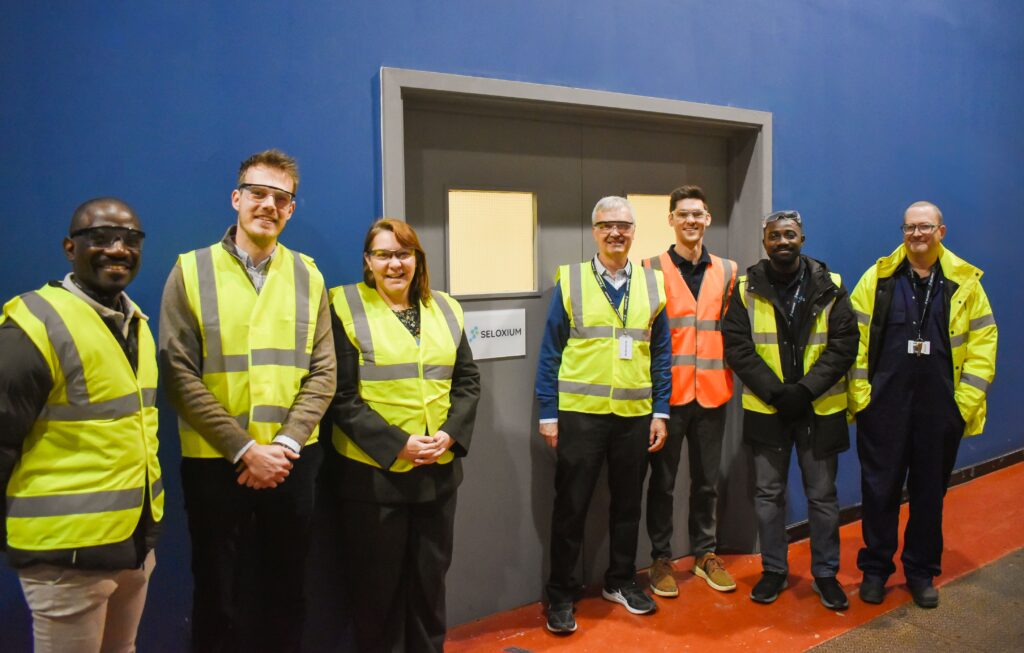
Christian concludes: “Circular economy solutions are a priority for us, and government funding plays a crucial role in supporting clean-tech innovation and dedicated research space. Any initiatives focused on supporting the circular economy and clean-tech industries are a step in the right direction.”
An Exciting Future
With Seloxium’s first commercial deals in progress, the company is rapidly scaling, securing additional space at the Wilton Centre, and investing in equipment to transition into full commercial operations, marking an exciting milestone for the team.
The company’s recent visit from Anna Turley, Labour (Co-op) MP for Redcar, at the Wilton Centre further underscores the growing interest in the sector.
Find out more about Seloxium here.
We’ll help you grow, scale and succeed
Expert programmes for every stage, from idea to exit

